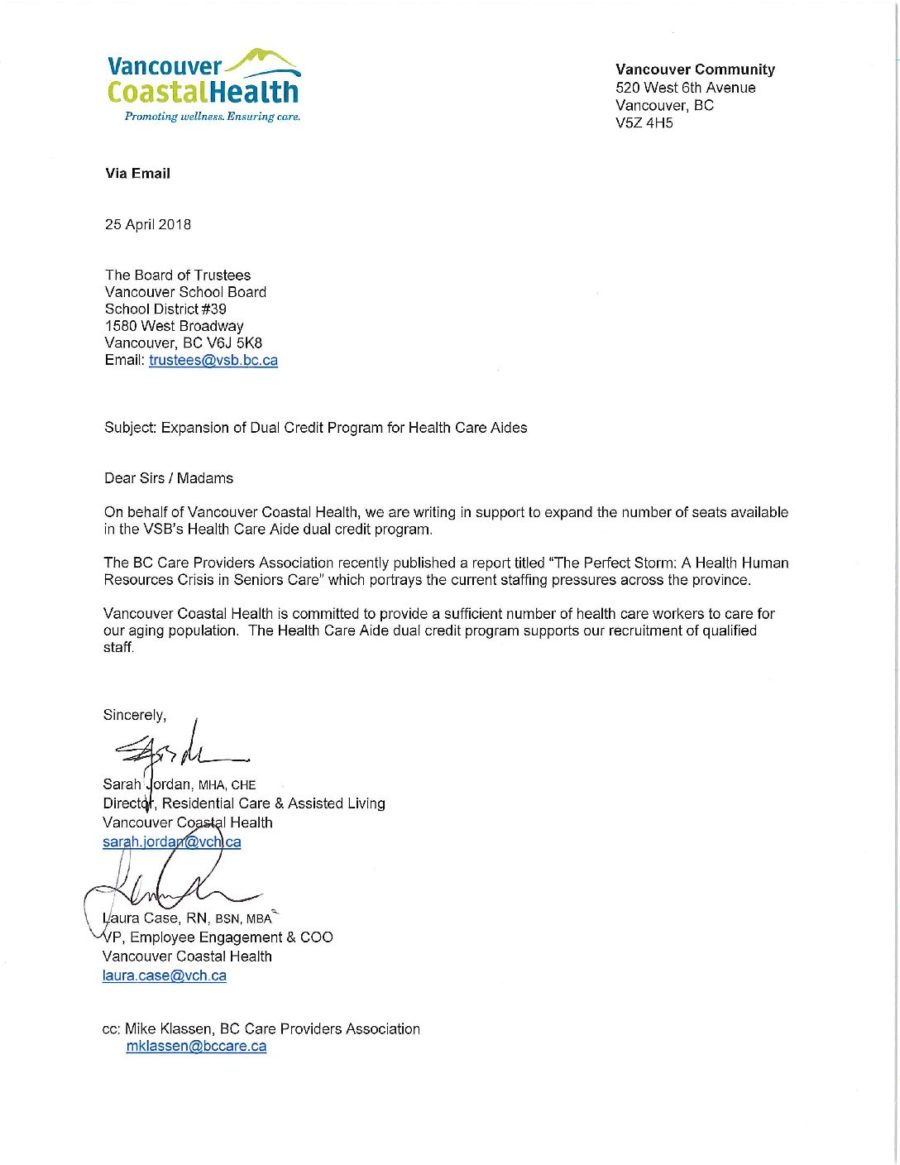Vancouver Coastal Health endorses motion to increase dual credit spaces for health care aides
BC Care Providers Association is advocating for the expansion of dual credit programs around British Columbia which allow high school students to gain credits towards their post-secondary Health Care Aide (HCA) diploma. On Monday evening, the Vancouver School Board is voting on a motion to increase those spaces in their district. An approval of the increase (which might add a modest but important addition to the current 2 spaces) would convey an important message to other districts to consider increasing these spaces as well.
“The existing partnership between the Vancouver School Board and Vancouver Community College provides only two care aide spaces a year—not nearly enough to meet the growing demand for HCAs in the city,” says Mike Klassen, VP Communcations and Stakeholder Relations. “The health care aide position is an ideal way for a young person to launch a long and successful career in the health care sector. Many HCAs upgrade their skills and training over time to later pursue careers as LPNs or as registered nurses.”
VSB trustee Lisa Dominato tabled a motion at a board meeting in January to increase the number of available spaces in the district’s program.

Vancouver Coastal Health has echoed BCCPA’s recommendation to expand the program. In a letter to VSB trustees, Sarah Jordan, Director of Residential & Assisted Living, and Laura Case, VP, Employee Engagement, said that growing the HCA dual credit program will support their recruitment of qualified staff.
The letter reads, “Vancouver Coastal Health is committed to provide a sufficient number of health workers to care for our aging population. The Health Care Aide dual credit program supports our recruitment of qualified staff.”
Seniors’ care is the fastest growing job sector in the province. BCCPA hopes VSB trustees will vote in favour of expanding the program which will allow students to secure rewarding, well-paying and high-demand jobs as soon as they graduate.
“B.C. is amidst a health human resource crisis, and staffing shortages are a major barrier to meeting the needs for our aging population,” adds Klassen. “Dual credit programs can ease staffing pressures in continuing care by growing the participation of young people in the sector, and expediting their entry into the workforce.”
Dual credit programs are underutilized in B.C. As part of its #BecauseBCCares awareness campaign that launched earlier this year, BCCPA contacted every school district in B.C. to either establish or expand dual credit program spaces for health care aides.





